Kyle Krull was a talented, gritty, compassionate football player who grew up in Lemont, IL, and went on to play for Western Illinois University. Concussions cut his football career short and he began to struggle with headaches, sleep issues, difficulty concentrating and irritability. Krull died by suicide on June 4, 2019, at the age of 25. His family donated his brain to the UNITE Brain Bank where researchers diagnosed him with Stage 1 (of 4) CTE. His sister Meg Campion is sharing Kyle’s story to help raise awareness about the seriousness of head trauma and deepen society’s understanding of CTE and suicide to prevent future tragedies like Kyle’s.
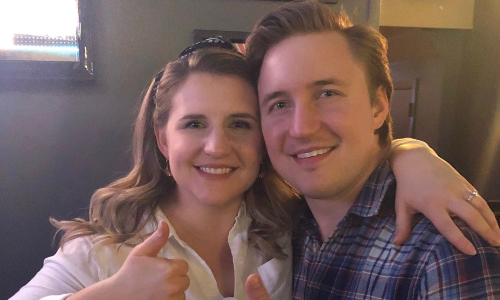
There is a reason his nickname was scud. The opposing offense rarely saw him coming. And if they did, it was too late. Kyle Krull could hit anyone on a football field and hit them hard. He was an aggressive linebacker with a natural eye for the game. His success was equal parts skill and strong will. Mediocre was not in his vocabulary. If he was going to do something, he was going to do it better than anyone else.
Kyle was the teammate everyone wanted to be around. As funny as he was kind. The team captain who made everyone feel welcome. If someone was eating alone in the cafeteria, Kyle would be the first person to pull up a chair.
His talent and charisma earned him the spot he’d always dreamed of – a Division I football scholarship. Kyle would play one season for the Western Illinois University Leathernecks before concussions cut his career short. In the years that followed Kyle began to question if the game that encapsulated his identity for most of his life could also be the source of so much of his pain.
By all accounts, he was a thriving 25-year-old living and working in downtown Chicago. But inside, he was fighting symptoms that scared him. Headaches that would never stop. Anger triggered by anything and anyone. Difficulty concentrating on the simplest tasks. Sleep was hard to come by. Kyle knew something was wrong, but he didn’t know how to fix it.
He went out with friends that Friday night like he always did. He was his usual outgoing, life of the party self. Then he went home. Kyle Krull took his life early the next morning, on June 1, 2019. He was found three days later.
Eat, sleep, breathe football
Kyle Krull was always on the go. There wasn’t a sport he wouldn’t try, or an activity he wasn’t into.
“The kid was moving and grooving,” Meg Campion, Kyle’s older sister said. “He did everything outside that you could imagine. Wakeboarding, snowboarding, skateboarding, rollerblading, basketball, hockey, lacrosse. You name it.”
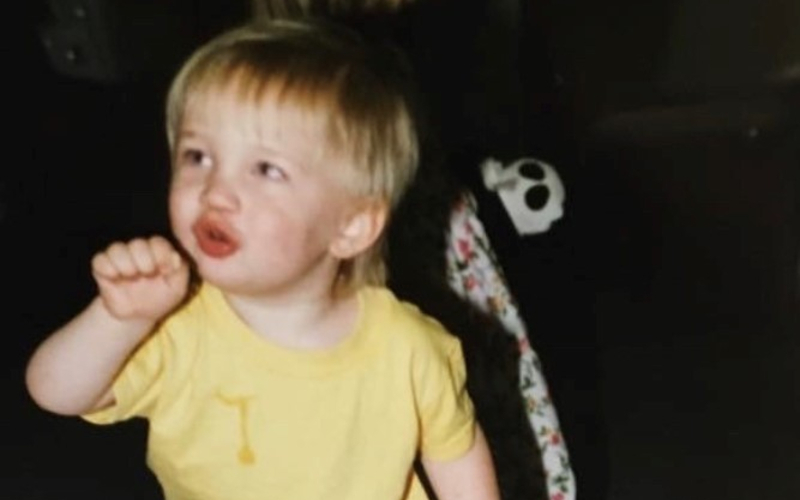
Then there was football. Kyle had his sights set on the gridiron from a young age. He wanted to follow in his father’s footsteps and play in college. Any linebacker on the Chicago Bears was his hero, and he couldn’t wait to experience the brotherhood of a team like he watched over and over again in movies like Remember the Titans and Friday Night Lights.

It was no surprise once Kyle suited up for his first Pee Wee league game in fifth grade that he was a star. And he worked hard at it. He became a student of the game and studied diligently. He took every opportunity to perfect his craft. But that hard work didn’t come without frustrations. By his early teenage years, a different Kyle started to subtly emerge.
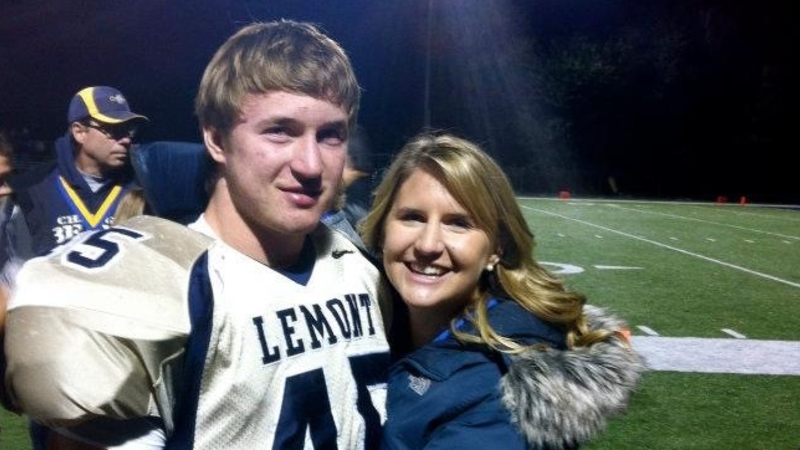
“He was this bright ray of sunshine for everyone around him,” Campion said. “He was the team leader always looking out for others but then he would come home and collapse because it was so hard to keep up. We rarely saw that side of him, but he would have outbursts and become very angry and say hurtful things.”
The game took its toll on Kyle, no matter how hard he worked to push through the pain or hide his brain injuries. In total, Campion thinks Kyle suffered upwards of 30 concussions.
“I remember him coming home from football camp and just sitting in a dark room saying, ‘I’m just so dizzy,’” Campion said. “But I had no idea what was really going on, I thought a concussion was just when you threw up after a head injury.”

In college, Kyle continued to take damaging blows to the head. After one season at WIU, he lost his love for the game and knew he had to be done.
“After that freshman season Kyle realized if he kept playing it would ruin his body and his brain,” Campion said. “He said, ‘That’s it. I’m not going to be a punching bag.’ We thought he was safe, but it turns out there are lasting effects there that we didn’t know about.”
Looking for a fresh start, Kyle transferred to Western Michigan University where he thrived. He adjusted well to life without pads and cleats and found a great group of friends. He excelled in the classroom and graduated from the business school with honors.
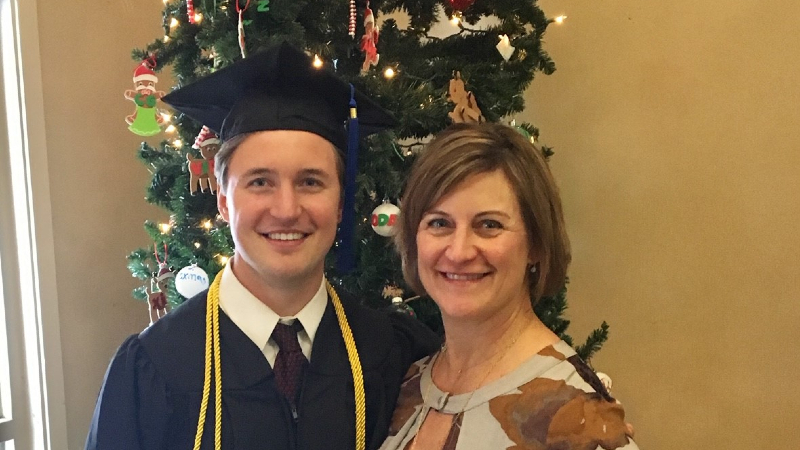
Cascade of symptoms
Kyle started his post-college career back in the Chicago area working for a third-party logistics company. He moved just four blocks away from his big sister. They did everything together, spending days and nights filled with the type of laughter that makes your abs sore.
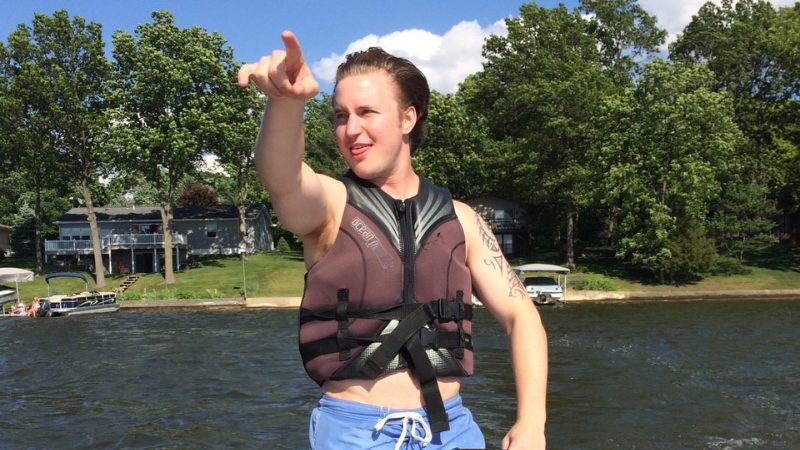
“He had this way about him of making any situation hysterical,” Campion said. “He just knew how to bring such light and joy wherever he went.”
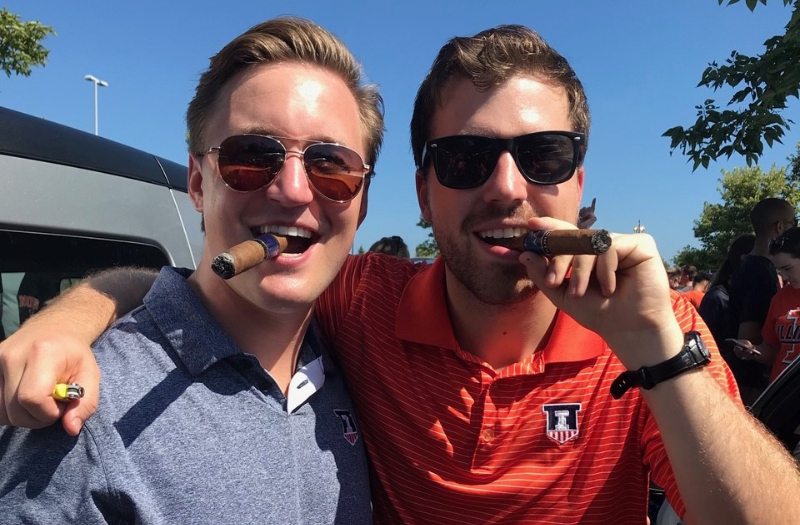
While Kyle continued to shine socially, he struggled cognitively. Things were harder than they used to be.
“It was tough for him to concentrate,” Campion said. “He had to write everything down because he couldn’t remember anything. I watched him struggle to learn new card games or retain any new information at all.”
He also battled relentless headaches, and Campion remembers him feeling tired all the time no matter how much sleep he had the night before or caffeine he was able to pound throughout the day. An athlete at his core, Kyle was especially concerned when he started having a hard time with his balance. He went to doctors for an answer. He was determined to figure out what was wrong with him on his own and refused any help from family. Because of that, Campion can’t be sure what the neurologists told her little brother, but she does know he thought about Chronic Traumatic Encephalopathy (CTE) often.
“One day he told me he wanted his brain to go to CTE research,” Campion said. “He said he didn’t want others to feel the way he did.”
That conversation triggered a turning point for Campion. She started to do her own research on CTE and realized her brother may be hiding serious pain behind his signature smile.
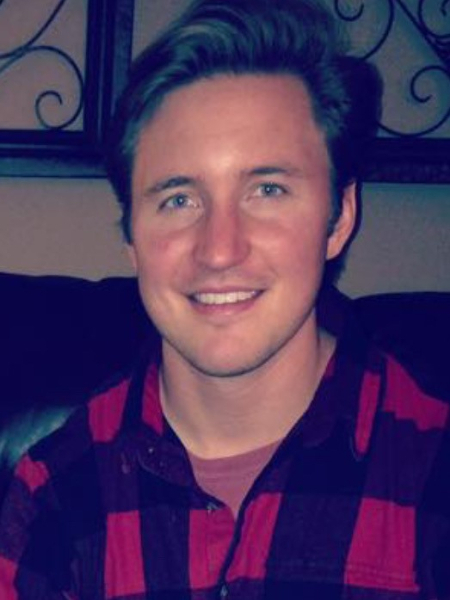
In the months that followed, Kyle became more irritable. Anything could set him off. He struggled with social anxiety and there was a sense of sadness about him. Still, Campion was comforted knowing he was seeking help and working to get better. He went to therapy weekly.
The night before Kyle Krull’s death he went out with friends. He appeared to be his normal, friendly self.

“I always tell people that Kyle was the better version of who I am,” Campion said. “He was who I wanted to be in social situations. How happy-go-lucky he was and how he made everyone feel instantly welcome. When he was talking to someone, he had this ability to make them feel like they were the most exciting thing in the room and he genuinely wanted to hear their story. He loved going into a room full of people he didn’t know – but then he also had this darker side that a lot of people didn’t see.”
The next morning, he died by suicide in his home. Kyle Krull was 25 years old.
According to the National Institute of Mental Health suicide is a complex public health concern, and there is no single cause. Suicide most often occurs when stressors and health issues converge to create an experience of hopelessness and despair.
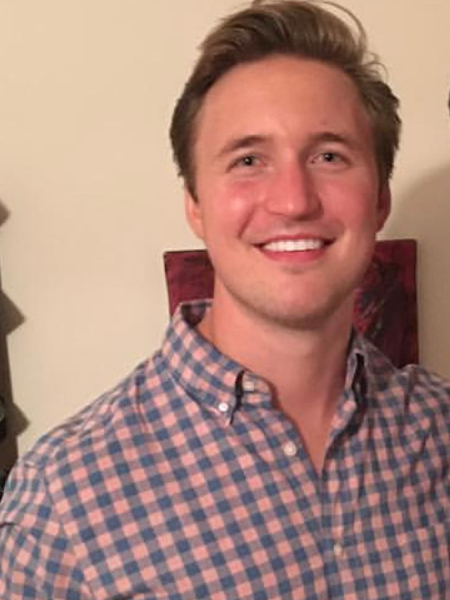
Finding answers
After Kyle’s death, his family scoured his computer for any sort of clue. They found every single tab he left pulled up pointing to things he could try to help improve his symptoms. He was always looking for ways to get better.
It was an easy decision for Kyle’s family to donate his brain to the UNITE Brain Bank. It’s what he wanted.
“The Kyle we knew and loved didn’t do this, something else inside him did,” Campion said. “He knew something was wrong so we want to do everything we can to figure out what it was. We want to know the name for what did this to our family and what changed our lives forever.”

Researchers at the VA-BU-CLF Brain Bank found Stage 1 CTE in Kyle Krull’s brain. Campion is now dedicated to educating others about CTE and making sure everyone knows it is a preventable disease.
An October 2019 study by Boston University researchers found for every year of tackle football played, a person’s risk of developing CTE increases by 30 percent. For every 2.6 years of play, the risk of developing CTE doubles. Knowing that crucial data, Campion hopes to see youth tackle football banned, and all athletes under age 14 playing flag football instead.
She also wants people to understand the complexity of depression. Not everyone has the same symptoms. Kyle rarely seemed sad. He was never withdrawn or isolated. She says it’s critical for people to understand somebody who is your best friend could be struggling and you might not know.
“I get this feeling of nausea that washes over me that I don’t have a brother anymore,” Campion said. “You never think about your future without your sibling and you kind of take advantage of them being in the background of your life or being in your life in general until they’re not there. There isn’t a moment that goes by that I don’t think of him and there are so many times where it’s uncomfortable to talk about with other people, but I can either use it as an opportunity to shut down or I can use it as an opportunity to educate people about what happened and share Kyle’s story so nobody else experiences the same pain.”
Suicide is preventable and help is available. If you are concerned that someone in your life may be suicidal, the five #BeThe1To steps are simple actions anyone can take to help someone in crisis. If you are struggling to cope and would like some emotional support, call the Suicide & Crisis Lifeline at 1-800-273-8255 to connect with a trained counselor. It’s free, confidential, and available to everyone in the United States. You do not have to be suicidal to call. If you’re not comfortable talking on the phone, consider using the Lifeline Crisis Chat.
If you or someone you know is struggling with concussion symptoms, reach out to us through the CLF HelpLine. We support patients and families by providing personalized help to those struggling with the outcomes of brain injury. Submit your request today and a dedicated member of the Concussion Legacy Foundation team will be happy to assist you.

